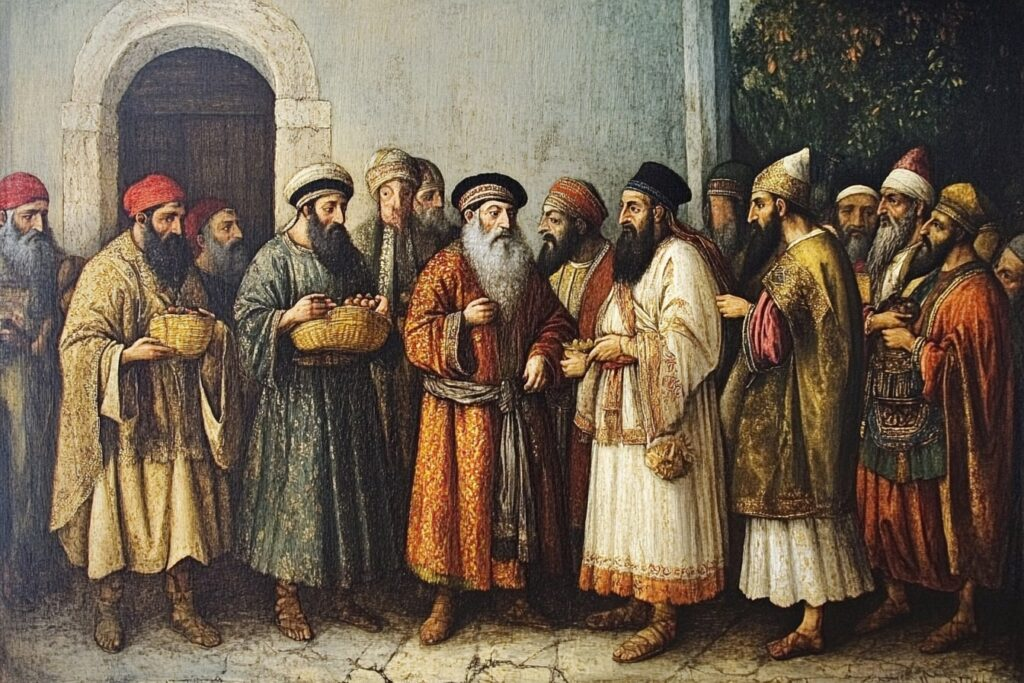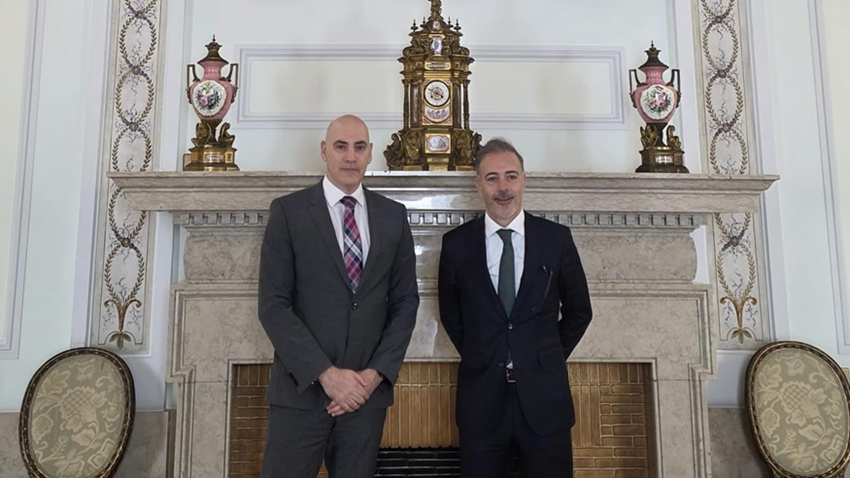In 1290, England expelled its Jewish population, following a trend seen in other European countries. However, in 1656, Rabbi Menasseh ben Israel, originally Manuel Dias Soeiro and residing in Amsterdam, tried to persuade Oliver Cromwell to allow the Jews to return.
This quieter presence began to take root after the expulsion of Sephardic Jews from Spain in 1492, when Portugal took in many of these exiles. But the peace didn’t last. In 1496, under Spanish pressure, King Manuel I ordered the Sephardic Jews to leave within ten months.
The king didn’t want to lose skilled and creative subjects, but his solution was far from kind: forced conversions and the removal of Jewish children from their families to be raised by Christians. Many resisted baptism and were forcibly dragged to baptismal fonts. Only a few, like astronomer Abraham Zacuto, managed to escape. The royal plan aimed for quick assimilation, but this did not happen.
Tensions culminated in the April 1506 massacre, when Dominican friars led a furious mob through Lisbon’s streets for three days, killing thousands of converted Jews.
As a result, the friars were executed, and travel restrictions imposed in 1497 on converted Jews were lifted. This triggered a diaspora of educated and wealthy Portuguese Jews to various European centers: Amsterdam, Hamburg, Bordeaux, Venice, Constantinople, and, of course, England.
This migration enriched local economies, fostering knowledge, culture, and trade. It’s ironic to consider that Portugal lost some of its most valuable talents by insisting on religious uniformity. At the same time, several Portuguese Jewish families with robust commercial networks established small communities in cities like Bristol and London.
The heiress of the Mendes fortune passed through Bristol in 1537, raising funds for her brother-in-law, Diogo Mendes, who financed monarchs like Henry VIII of England, John III of Portugal, Francis I of France, and even Sultan Suleiman of the Ottoman Empire. Such was his influence that Henry VIII himself intervened on Mendes’ behalf when he was accused of "Judaizing."
A semi-secret Jewish community existed in Bristol, holding clandestine religious services. Despite occasional crackdowns, the community resurfaced as political tides shifted. During Elizabeth I’s reign, trade expanded, and with it, the presence of Marranos, who numbered about a hundred in London.
Behind closed doors, Judaism was practiced, while trade routes were established between the Old and New Worlds. London replaced Lisbon as the global diamond hub. Sugar, coffee, tobacco, spices, and precious stones flowed thanks to these merchants, who lived double lives: respected traders by day, devout Jews in the privacy of their homes.
In 1585, England was at war with Spain, which had annexed Portugal in 1580. Philip II of Spain sought to restore Catholicism in England and prepared an invasion.
Here enters Hector Nunes, a Portuguese New Christian doctor born around 1520, who fled to England to escape the Inquisition. His trade served as a cover for espionage, providing intelligence on Spanish naval movements to Elizabeth I’s court.
Nunes corresponded with Philip II himself, feigning commercial loyalty while secretly aiding the English. It’s said that upon learning of the departure of the Spanish Armada from Lisbon in 1588, Nunes left his dinner mid-meal (possibly abandoning a hearty piece of bread), rushed to inform Francis Walsingham, and prepared England for the attack. The result is well-known: the Spanish fleet suffered a heavy defeat, with less than half returning home.
This episode illustrates how, after expulsion and persecution in Portugal, Portuguese Jews found not only refuge in other countries but also a stage where their economic, cultural, and strategic influence played decisive roles.
From fugitives to key players in one of Europe’s most significant historical moments, they made an unexpected contribution to England’s victory over the feared Armada. The initiative to allow Jews back into England wasn’t entirely successful, as Cromwell sought parliamentary approval without achieving full endorsement. Still, this effort planted seeds that would later grow, enabling Jews, including Portuguese Jews, to return to England. However, they wouldn’t gain equal status with the English until the 19th century.
Until recently, it was believed there were no Jews in England between 1290 and 1656. However, many Portuguese Jews adopted Catholic or Protestant identities (Marranos) and managed to settle there during the times of Henry VIII and Elizabeth I.
Source: VortexMag


































